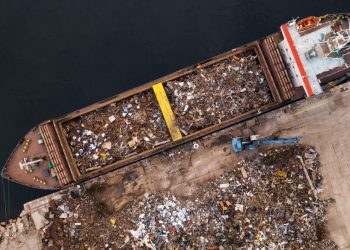About 100 maritime companies and nine NGOs sent an open letter to IMO on the need of implementing speed restrictions for all commercial ships. The letter said ‘As the initial step we express our strong support for the IMO implementing mandatory regulation of global ship speeds differentiated across ship type and size categories’.
Mainly, T&E’s, which was amongst the nine NGOs, policy manager Faig Abbasov commented
Cutting speeds is the easiest thing for the industry to do in the immediate future – no need to change ships or port infrastructure. And it’s important, because if shipping keeps on emitting without any control, it will exhaust the sector’s carbon budget before zero carbon fuels become available. It would also mean that the sector will have to decarbonise much earlier than 2050, making the transition process very disruptive.
Financial Times’ figures present that container ships with a capacity of between 12,000 and 14,500 containers tonnes (TEU) had an average sailing speed in 2015 of 16 knots, down from 20.6 knots in 2007.
In addition, the largest container ships, of 14,500 TEU and up, sped up from 15 knots to almost 17 knots between 2012 and 2015, according to the ICCT’s greenhouse gas inventory.
Therefore, the emissions increased.
The letter sent to the IMO doesn’t specify a fixed figure or percentage reduction; On the contrary, the letter notes
Our preference would be to set maximum annual average speeds for container ships, and maximum absolute speeds for the remaining ship types, which take account of minimum speed requirements. Such a regulation should be implemented as soon as possible.
Concluding, Faig Abbasov highlighted that the need for speed limits is obvious, keeping in mind that the efficiency improvements will follow.






























































